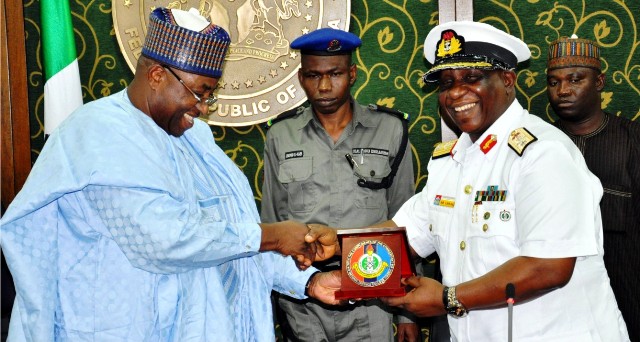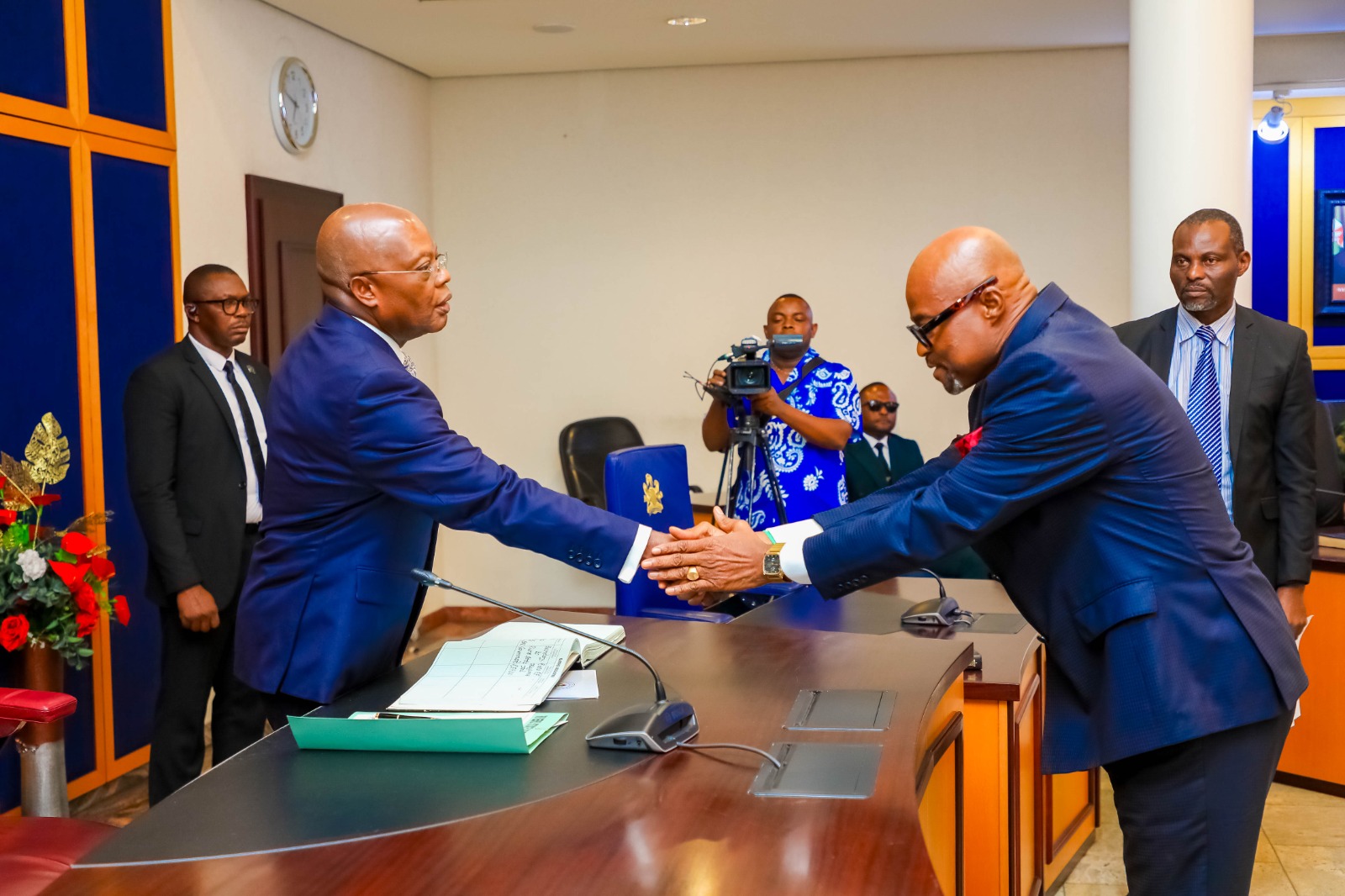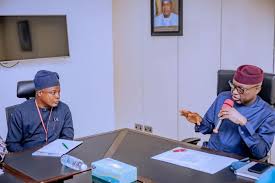Featured
Senate To Make Election Debates Mandatory …Moves To Locate NEDC Office In Maiduguri …Summons MTN, Banks Over $13.9bn Illegal Transfers

The Senate has commenced moves to make it mandatory for those seeking elective positions to participate in pre-election debates.
The moves by the Senate followed the presentation of a bill by Sen. Abdulfatai Buhari (APC- Oyo North) which was read for the second time.
The upper legislative chamber referred the bill to the Committee on Establishment and Public Service as well as Committee on INEC.
The bill is entitled: “Nigerian Political Debates Commission Bill, 2015.”
If passed, those seeking election as president, governor, lawmakers and other elective positions, including their running mates, would have to go through a debate which would be organised by a proposed commission.
Presenting the lead debate, Buhari said that the bill would give legislative backing to the establishment of a commission that would be charged with organising the debate.
“The bill, if considered and passed by this hallowed chamber, will strengthen our democracy and bring it in conformity with the practice in other renowned democracies of the world,” he said.
He said that the United States was a good example where debates were properly used to reach out to the electorate.
The senator said that political parties and aspirants were already accustomed to the debates which had now become mandatory since it began in 1960 between then Democratic nominee, John Kennedy and his Republican rival, Richard Nixon.
He urged his colleagues to support the bill for passage.
“The debate is the de facto election process in the United States as results of elections are predicated on the candidates’ performance at the debates.
“An analogous experience of this crucial indispensability of electoral debate is the current presidential debate between Hillary Clinton of the Democratic Party and Donald Trump of the Republican Party”, he added.
In another development, following the presentation of the report on the Committee of the North East Development Commission (NEDC) by Senator Sam Egwu (Ebonyi North) to the Senate on Tuesday, the Senate has resolved to take the headquarter of the commission to Maiduguri, the Borno State capital.
The report recommended that 3 per cent of Value Added Tax (VAT) be paid to the commission’s vault for the next 10 years to enable the reconstruction of wanton destruction of the zone by Boko Haram insurgents.
However, Senator Biodun Olujimi (Ekiti South) objected to VAT remittances on the ground that part of VAT is derived from alcohol, which remains a banned substance in the North on religious grounds.
Reacting, Senate Leader, Ali Ndume, argued that VAT remittances should be sustained as recommended, saying the people in the North East are ‘heavy drinkers.’
“My President, Distinguished Colleagues, even in the North East, they are heavy drinkers of alcoholic beverages and in a way, they are also contributing to VAT. I, therefore, ask that the recommendations should be upheld,” Ndume said.
In his ruling, the Senate President, while upholding the recommendations of the report referred it to Ad-hoc Committee with a mandate to report back in a week time.
Meanwhile, the Senate has launched a probe into the allegation that MTN Nigeria repatriated a total sum of $13.9billion from Nigeria to other countries between 2006 and 2016 by summoning the management of the telecoms service provider, their bankers and some businessmen over alleged violation of the Foreign Exchange (Monitoring and Miscellaneous) Act.
During its plenary, yesterday, the Upper Chamber requested MTN and the others to appear before its Committee on Banking, Insurance and Other Financial Institutions next week.
Recall that the lawmaker representing Kogi West, Senator Dino Melaye had revealed that “between 2006 and 2016, the MTN Nigeria, in collaboration with four commercial banks and with the help of a serving minister, has moved over $12billion out of this country”.
Melaye later claimed that the illegal repatriation was allegedly facilitated by the Minister of Trade and Investment, Dr. Okechukwu Elenemah, naming banks allegedly involved as: Stanbic IBTC, Standard Chartered Bank, Citi Bank and Diamond Bank.
Featured
Bring Your Wealth Of Experience To Governance, Ibas Tasks New SSG

The Sole Administrator of Rivers State, Vice Admiral Ibok Ete Ekwe Ibas (rtd), has charged the new Secretary to the State Government (SSG), Prof Ibibia Lucky Worika to bring his wealth of experience to bear in governance of the State.
Vice Admiral Ibas (rtd) gave the charge shortly after swearing in the new SSG at the executive chambers of Government House on Wednesday night.
The Administrator who congratulated Prof Worika on his appointment said the choice was not merely an administrative decision but a statement of intent.
Vice Admiral Ibas (rtd) explained that the new SSG has an unparallel expertise in law, policy and international governance, which align perfectly with the mission to restore law, order, integrity and public trust in Rivers State.
He said: “To our new SSG, the task ahead is onerous, but your track record leaves no doubt in our minds that you will prove your mettle. Rivers State needs your intellect, grit and unweaving dedication. Together, we will write a new chapter of progress for this great state.
“Prof Worika’s role will be critical in driving this vision, ensuring that every policy, every decision and every action is in consonance with this administration’s mandate to restore law and order, stabilize the polity and to create the necessary conditions for the restoration of democratic institutions and representations.”
Vice Admiral Ibas (rtd) pointed to his maiden address to Rivers people wherein he emphasised that his administration will be committed to delivering an effective governance that is anchored on transparency, accountability and service.
He therefore, enjoined the new SSG to brace up to the demands of his office, and offer his best service as required while also working cooperatively with civil servants.
Vice Admiral Ibas (rtd) said: “You have no time to settle down. You must roll up your sleeves and get to work with the team.
“Our civil servants with whom we will work closely to run this administration are critical stakeholders and we must work with them to ensure that the state continues to function effectively during this administration.
“To the Permanent Secretaries and civil servants as a whole, once more I will ask your kind cooperation and support as we work to achieve our objectives at this time,” he added.
Featured
I Am One Of You, Sole Administrator Tells Rivers People …Warns Against Violence, Crude Oil Sabotage

The Sole Administrator of Rivers State, Retired Vice Admiral Ibok-Ete Ibas (rtd), has assured residents that he is not in the State as a partisan actor or political competitor but as a stabilising force to restore governance and order.
In a state broadcast yesterday, Ibas, who assumed duty at Government House, Port Harcourt, emphasised his commitment to protecting civil liberties and ensuring the safety of all citizens.
However, he issued a stern warning against crude oil sabotage and violence, urging residents to resist any temptation to return to past hostilities.
“For decades, I have dedicated my life to the service of our great nation—first as the 20th indigenous Chief of Naval Staff and later as Nigeria’s High Commissioner to Ghana. I answered this call out of the need for peace in Nigeria, and most importantly, in Rivers State,” Ibas stated.
Describing the prolonged political impasse as a major setback to governance and democracy, he acknowledged the hardships faced by families and businesses due to the prevailing uncertainty.
“As a son of the Niger Delta, I am one of you. I feel the weight of this crisis on families, businesses, and the future of our people,” he said.
Ibas commended President Bola Tinubu’s decisive action in declaring a state of emergency in Rivers State, stressing that it was a necessary move to restore stability and revive economic activities.
“My mandate is clear: restore law and order, ensure stability, and create an enabling environment for economic growth. But this mission requires collective support from all stakeholders, regardless of political affiliation or ethnicity,” he stated.
He discouraged attacks on oil infrastructure, reminding residents of the devastating environmental and economic consequences of such actions.
“The Niger Delta has moved beyond the destruction of oil facilities. We must resist the temptation to return to those ugly days,” he cautioned.
While pledging to uphold civil liberties and the rule of law, the Sole Administrator warned that lawlessness and violence would not be tolerated.
“We will not act arbitrarily, but we will not hesitate to deal decisively with anyone who threatens the peace and stability of Rivers State,” he declared.
Ibas revealed that he had concluded a State Security Council meeting where strategic measures were outlined to de-escalate tensions and prevent further conflict.
Expressing gratitude to President Tinubu for entrusting him with the responsibility, he also acknowledged the National Assembly for approving the emergency declaration.
“I will work closely with the national leadership under the guidance of the President. I am optimistic that Rivers State will emerge stronger and greater,” he concluded.
Featured
Abuja Truck Explosion Death Toll Rises To 10 …As Another Truck Crashes On Same Spot

The Federal Capital Territory Emergency Management Department has confirmed that 10 persons have died in the truck explosion that occurred near Karu bridge, along the Abuja-Keffi Expressway, on Wednesday.
The FEMD’s Head of Public Affairs, Nkechi Isa, confirmed the numbers in a statement, yesterday.
The Acting Director General of the Emergency Department, Abdulrahman Mohammed, had earlier confirmed that eight persons had died as of yesterday morning, with five confirmed dead on the scene, and four others burnt beyond recognition.
““Five people were taken dead from the scene yesterday (Wednesday). Out of the people that were injured, one died, making six. Then this morning (yesterday), when I asked my people to go round, they discovered that two had already died again, making eight. Four of them from yesterday were burnt beyond recognition.”, he explained.
However, in her statement, Isa said the Head, Forecasting Response and Mitigation of FEMD, Mr Mark Nyam, said eight bodies were deposited at the Karu Hospital Morgue, one body at the Asokoro Distinct Hospital Morgue while another body was deposited at the National Hospital.
He added that some victims had been referred to the Gwagwalada Teaching Hospital, Federal Medical Centre, Keffi, and Cedercrest Hospital Abuja for proper care.
Part of the statement reads, “The FCT Emergency Management Department FEMD can confirm that 10 persons lost their lives to the truck explosion that occurred at Karu bridge along Abuja / Keffi expressway.
“The Head Forecasting Response and Mitigation of FEMD, Mr Mark Nyam said eight bodies were deposited at the Karu Hospital Morgue, one body at the Asokoro Distinct Hospital Morgue while another body was deposited at the National Hospital.”
He informed that over 30 persons suffered various degrees of burns.
“Some of the victims have been referred to Gwagwalada Teaching Hospital, Federal Medical Centre,Keffi and Cedercrest Hospital Abuja for proper care,” he said.
Isa also stated that no fewer than 10 vehicles were burnt during the incident, adding that the FEMD boss after a visit to the incident scene, appealed to motorists to observe traffic rules and regulations.
He also cautioned against reckless driving, dangerous overtaking and poor maintenance of vehicles, while urging FCT residents to always use the 112 emergency toll free number in the event of an emergency.
Meanwhile, barely 24 hours after the incident, another fertiliser-laden truck has collapsed on the same spot.
The Tide learnt that the incidence occurred at about 3:54pm yesterday.
The Head of Public Affairs of the FCT Emergency Management Department, Nkechi Isa, confirmed the accident in a statement, stating that the truck collided with a Hijet and a dump truck, adding that no life was lost.
She cautioned road users to drive with caution as the Federal Road Safety Corps was making efforts to tow away the affected vehicles, to avoid traffic built up.
“Another accident has occurred under Karu bridge along the Abuja-Keffi Expressway. Thankfully, no life was lost to the incident. Our Search and Rescue say the accident occurred when a truck laden with fertilizer ran into a Hijet and a dump truck also known as tipper.
“Motorists are advised to drive with caution as the Federal Road Safety Corps is taking steps to tow away the affected vehicles in order to avoid traffic built up,” the statement read.
Meanwhile, several videos showed some persons trying to clear the fertiliser bags from the fallen truck to ease traffic.
-

 News14 hours ago
News14 hours agoWE’LL ENSURE SONGHAI FARMS BECOMES FUNCTIONAL SOON -IBAS
-

 Politics12 hours ago
Politics12 hours agoEmbrace Christ’s Teachings, Dep Speaker Tasks Citizens At Easter
-

 News14 hours ago
News14 hours agoShettima to visit Plateau Today Over deadly attacks
-

 Education2 hours ago
Education2 hours agoOtu Inaugurates UNICROSS, UEE’s Governing Councils
-

 News13 hours ago
News13 hours agoCouncil Boss Sues For Love, Unity
-

 News14 hours ago
News14 hours agoIBAS, FAMILY CELEBRATE EASTER AT GOVERNMENT HOUSE CHAPEL
-

 Politics12 hours ago
Politics12 hours agoEkiti YPP Felicitates Christian Faithful At Easter
-

 News14 hours ago
News14 hours agoUS Supreme Court stops Trump from deporting migrants

